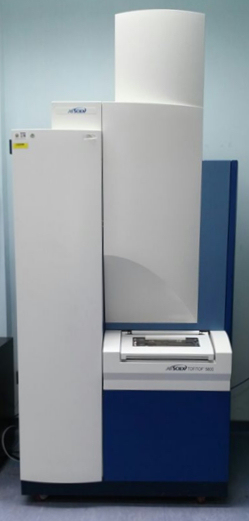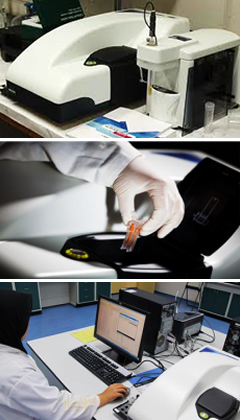Protein identification
Protein identification using 5800 MALDI-TOF/TOF (SCIEX)
We provide protein identification service to facilitate the gel-based proteomics approach. Customer will provide gel plugs containing protein and we will perform in-gel digestion, instrumentation analysis and database search using the Protein Pilot software. Upon completion, customer will be given the MASCOT (MatrixScience) search result by email.
Fee
| RM (per sample) | |
| Government | 280 |
| Non-government | 500 |
Linear and reflector modes analyses using 5800 MALDI-TOF/TOF (SCIEX)
We provide linear and reflector modes analyses to obtain mass to charge ratio (m/z) or molecular weight (MW) of peptides, protein, phosphopeptides, small molecules, neutral carbohydrates, synthetic polymers and oligonucleotides. Upon completion, customer will be given the mass spectra result of the sample by email.
Fee
| RM (per sample) | |
| Government | 500 |
| Non-government | 700 |
Rental of 5800 MALDI-TOF/TOF (SCIEX) for method development
We also provide rental of this mass spectrometry specifically for new method development. We will facilitate large scale projects involving proteomics and other related analyses. Our staff will perform the method development with consultation by our expert. Fee will be determined by details of project.
Contact
Dr. Nurulhasanah Othman
En. Muhammad Hafiznur Yunus
maldiservice2018.informm@gmail.com
Phone: +604-6534801


